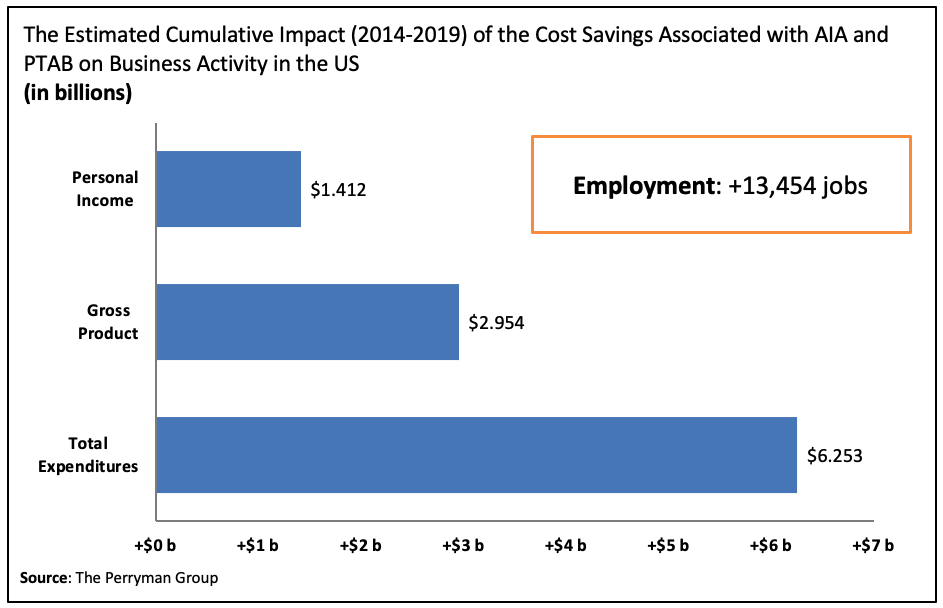The Perryman Group found the PTAB has grown the U.S. economy, saved U.S. manufacturing jobs, and reduced litigation costs
Innovation is a key factor in U.S. economic growth and competitiveness—one balanced by transaction costs and freedom-to-operate. One critical element of the infrastructure facilitating product development and commercialization—the patent system—protects and allows profit from intellectual property and encourages its widespread adoption and implementation through well-calibrated patent scope. That system includes the Leahy–Smith America Invents Act (AIA), which rechristened the Patent Trial and Appeal Board (PTAB) and created the administrative post-grant review procedures in wide use today.
In a recent study, The Perryman Group (TPG), a world-renowned group of economists widely used and respected by industry and government, measured the effect of the AIA and PTAB on the U.S. economy. TPG found the AIA and PTAB substantially reduced patent litigation and transaction costs while generating billions in economic benefit. The biggest gains were in manufacturing and trade, transportation, and utilities. In short, the legislation saved U.S. jobs and has helped drive substantial economic gains over the past decade.
TPG, using well-established economic analyses, first estimated the direct cost savings associated with reduced litigation, and then computed the total economic benefits of the associated efficiency gains as they have rippled through the economy.








